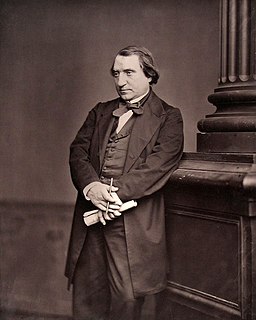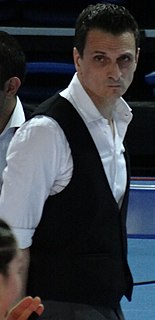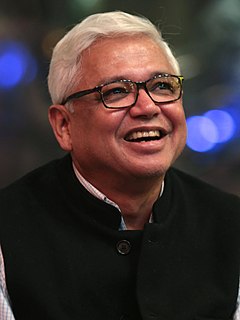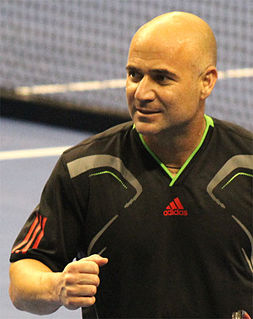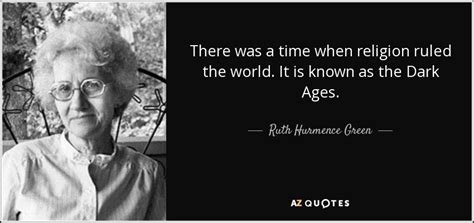A Quote by Ernest Renan
Our opinions become fixed at the point where we stop thinking.
Related Quotes
I go into any movie that's historical fiction thinking, 'OK, I'm here to watch a work of art, something delivering a series of opinions, and if it's a good work of art, these opinions become so deeply embedded in complexity and richness that I won't even be bothered by the opinions. I'll make my own mind up.'
For too many of us, it's become safer to retreat into our own bubbles, whether in our neighborhoods or on college campuses, or places of worship or especially our social media feeds, surrounded by people who look like us and share the same political outlook and never challenge our assumptions. And increasingly, we become so secure in our bubbles that we start accepting only information, whether it's true or not, that fits our opinions, instead of basing our opinions on the evidence that is out there.
We make the commitment to stop for a moment and look at what the mind is doing, what mind state we are dwelling in. We don't judge it, we just know it. Gradually we'll become more and more accustomed to being conscious of what we're thinking and our various positive and negative states. We'll become more and more the masters of our mind, rather than the slaves.
You see, in our family we don't know whether we're coming or going - it's all my grandmother's fault. But, of course, the fault wasn't hers at all: it lay in language. Every language assumes a centrality, a fixed and settled point to go away from and come back to, and what my grandmother was looking for was a word for a journey which was not a coming or a going at all; a journey that was a search for precisely that fixed point which permits the proper use of verbs of movement.
It's no accident, I think, that tennis uses the language of life. Advantage, service, fault, break, love, the basic elements of tennis are those of everyday existence, because every match is a life in miniature. Even the structure of tennis, the way the pieces fit inside one another like Russian nesting dolls, mimics the structure of our days. Points become games become sets become tournaments, and it's all so tightly connected that any point can become the turning point. It reminds me of the way seconds become minutes become hours, and any hour can be our finest. Or darkest. It's our choice.
I feel that we should stop wasting our time trying to please the supernatural and concentrate on improving the welfare of human beings. I think that, uh, we should use our energy and our initiative to solve our problems, and stop relying on prayer and wishful thinking. If we have faith in ourselves, we won't have to have faith in gods.
